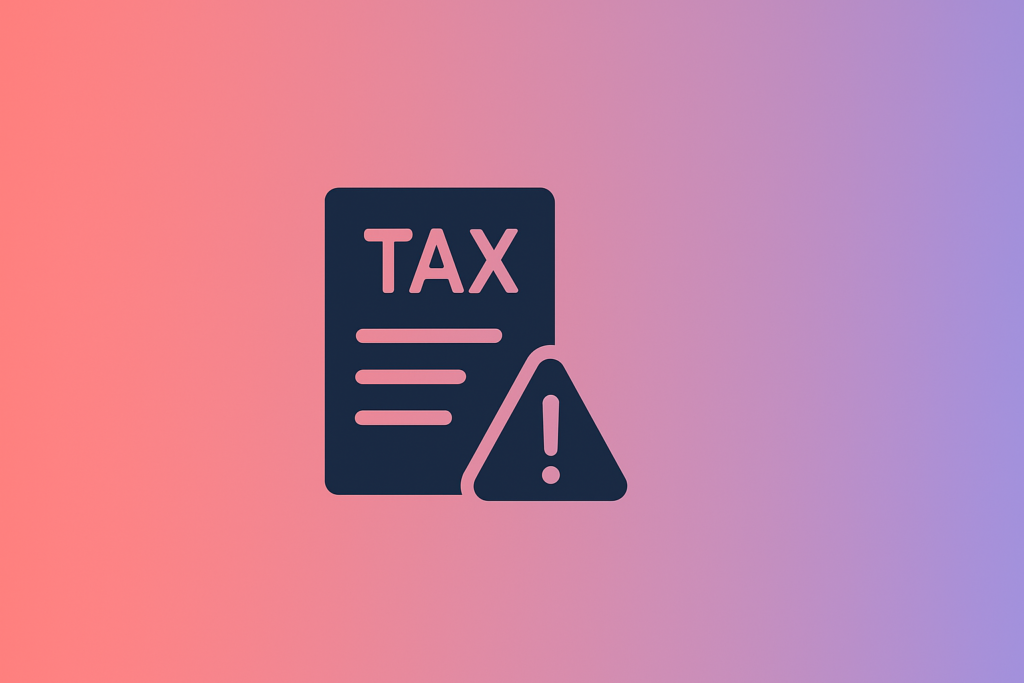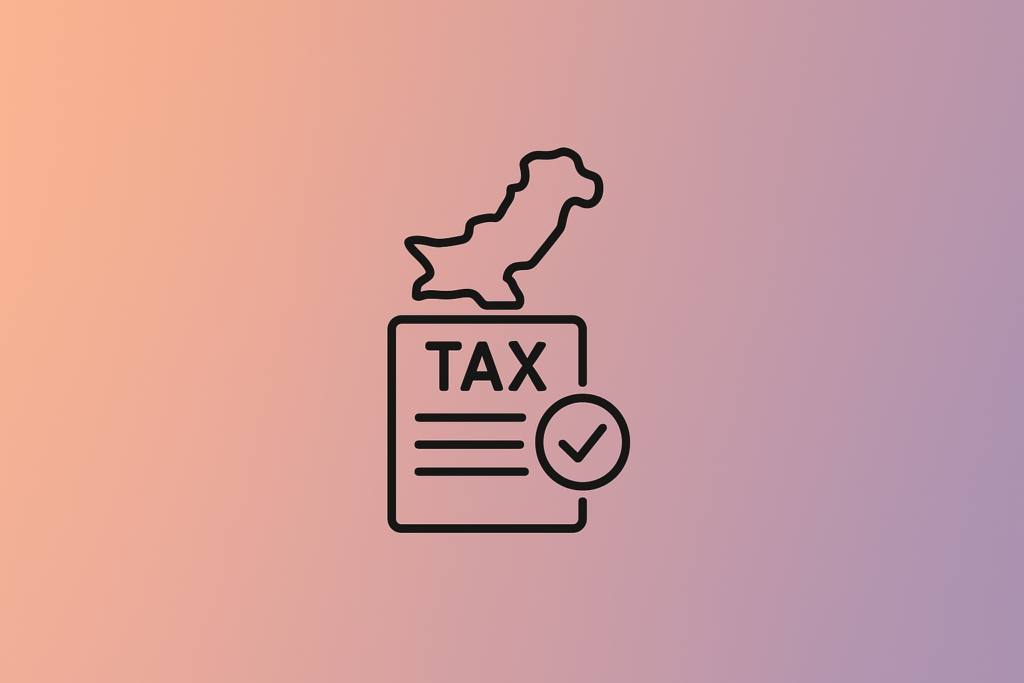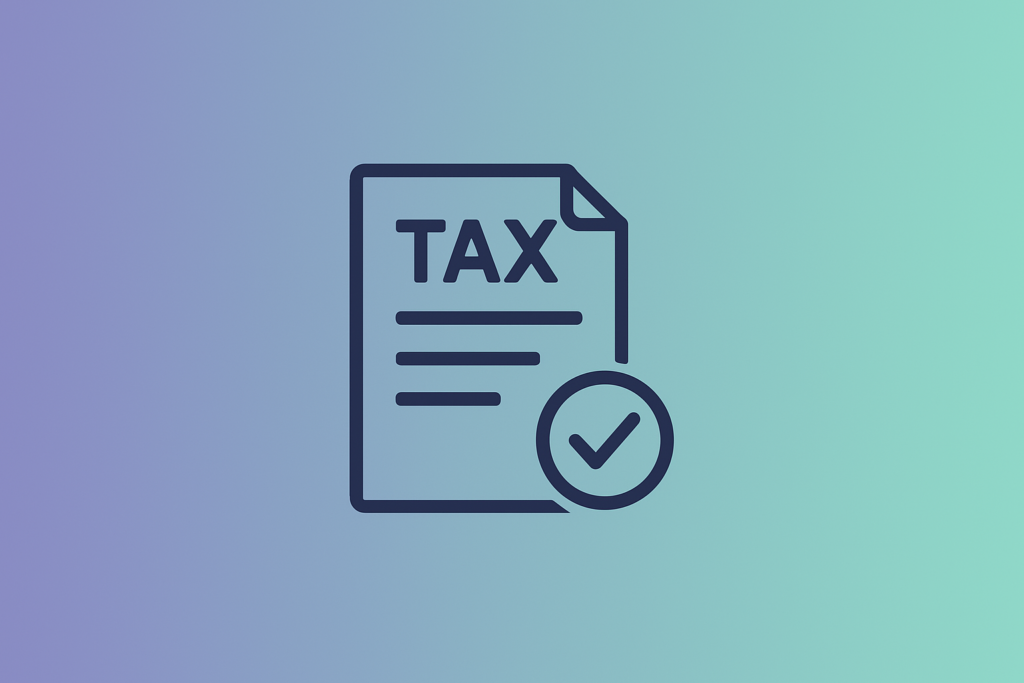Hey, Shahzad here.
Let me say this upfront — filing taxes in Pakistan isn’t always fun. But it’s also not that complicated… if you know what you’re doing.
Still, every tax season, I see people — smart, hardworking individuals — mess up their returns in ways that cost them money, refunds, or worse… get them flagged by FBR’s automated system.
And here’s the frustrating part: most of these tax filing mistakes are completely avoidable.
So today, I’m going to walk you through the most common tax filing errors I’ve seen in my 20+ years of helping salaried individuals, freelancers, and small businesses with their tax preparation in Pakistan.
If you want to stay compliant, avoid penalties, and file like a pro, keep reading.
Why Small Mistakes Can Cost You Big with FBR
Before we get into the list, let me explain why these mistakes matter.
Filing your return isn’t just about “completing a form.”
It’s about:
- Making sure you show up on the Active Taxpayer List (ATL)
- Avoiding notices, penalties, and audits
- Ensuring you qualify for refunds or tax credits
- Keeping your name clear when applying for loans, visas, or tenders
I’ve seen people miss out on thousands of rupees in refunds simply because they clicked the wrong option… or forgot to fill one box.
Let’s make sure that’s not you.
Mistake #1: Not Submitting the Wealth Statement
This one’s at the top for a reason.
Every year, people file their income tax return — but forget to submit the wealth statement (Form 116).
And here’s the bad news: if your wealth statement isn’t filed, your return is considered incomplete — and you don’t get ATL status.
Even worse, FBR may issue a notice under Section 114(4) for non-compliance.
So what is the wealth statement?
It’s simply a declaration of:
- What you own (bank balances, cash, cars, property, investments)
- What you owe (loans, credit card bills)
- What you spend each year (utilities, food, rent, etc.)
- How your net worth changes
Even if you’re a salaried person with no assets, you still have to file it.
Always complete and submit Form 116 right after your income return.
Mistake #2: Assuming You Don’t Have to File Because “Tax is Already Deducted”
This one hurts.
Just because your employer or bank deducted tax at source, doesn’t mean your duty is done.
Filing your return is a separate responsibility.
If you skip it:
- You won’t be a filer
- You’ll pay higher withholding taxes
- You can’t claim deductions or refunds
- You risk being non-compliant under Section 114
For example:
I helped a client last year whose employer deducted Rs. 90,000 in tax. After we filed her return — and claimed her pension, insurance, and school fee deductions — her actual liability was Rs. 42,000.
She got a refund of Rs. 48,000.
So yes — filing matters.
Mistake #3: Forgetting to Claim Withholding Tax Already Paid
Whether you’re salaried, freelance, or run a small business, you probably pay withholding tax every day without realizing it:
- Bank transactions over Rs. 50,000
- Cash withdrawals
- Property deals
- Car registration
- Electricity or mobile bills (if you’re a non-filer)
Good news?
These withholding taxes are adjustable — but only if you file and declare them.
You’ll need your bank’s annual tax deduction certificate, which you can usually download from your banking app.
I’ve seen clients recover over Rs. 120,000 by declaring these.
So always track it. Always claim it.
Mistake #4: Not Declaring Foreign Freelance Income
If you’re working online and receiving payments from abroad through Payoneer, Wise, or direct transfer — you’re officially in business.
And yes, your foreign income must be declared — even if it’s exempt under Section 111(4).
Some freelancers think, “Well, I didn’t pay tax on it, so I shouldn’t mention it.”
Wrong. Declaring and claiming legal exemption is the only correct approach.
Here’s what you need to keep:
- Bank statement showing inward foreign remittance
- Payment gateway summary (Payoneer, Upwork, etc.)
- SWIFT transfer slip or receiving advice (if available)
When declared properly, this income won’t be taxed, but it will show transparency — which is what keeps FBR off your back.
Mistake #5: Overstating or Fabricating Expenses
This one’s risky — and it can get you into serious trouble.
Let’s say you earned Rs. 2 million through freelance work. You want to reduce your tax, so you randomly enter Rs. 1.5 million in “expenses.”
That would bring your taxable profit down to Rs. 500,000 — but if you can’t back up those expenses with proof, you’re exposed.
The FBR can issue a notice under Section 122, questioning your calculations.
Always keep receipts or digital records of:
- Internet and mobile bills
- Laptop, software, or subscriptions
- Electricity or co-working rent
- Travel or professional training
If you’re ever asked to verify your return, these records protect you.
Would you like me to continue with Part 2, which will include:
- More mistakes to avoid
- Filing errors that trigger audits
- Tips for first-time filers
- How to fix a mistake in your filed return
- A final checklist and expert call-to-action
Let me know and I’ll continue immediately.
Mistake #6: Filing After the Deadline
One of the most common — and most damaging — mistakes I see is filing your return late.
FBR’s return filing deadline is usually September 30th each year (unless extended officially). If you file after that, you:
- Miss ATL inclusion (which means higher tax on everything)
- Pay heavier withholding taxes all year
- Become ineligible for government contracts, tenders, or visa clearance
- May even face a penalty under Section 182 for late filing
Let me tell you something real — I’ve had clients lose lucrative business deals and even get stuck on visa applications because their return wasn’t on file in time.
Don’t let that happen to you.
File early. File smart.
Mistake #7: Relying Blindly on Agents Without Understanding Your Return
I’ve helped dozens of clients clean up the mess left behind by a so-called “filing agent” who just clicked through the IRIS portal without reviewing anything.
Look, I’m not saying all tax filers are bad. But here’s the problem:
If you don’t understand what was filed on your behalf, you’re legally responsible for any errors.
I’ve seen people who had property declared in their return that they never owned, or income overstated just to inflate refunds — all because they blindly trusted someone.
That’s why I always educate my clients — not just file for them.
If you’re hiring someone, great. But make sure:
- You review every entry before submission
- You get a copy of your filed return and wealth statement
- You verify your ATL status afterward
Your tax file is your financial identity — treat it that way.
Mistake #8: Using a Wrong Tax Year
This one’s sneaky.
FBR follows the fiscal year — July 1st to June 30th. So when you’re filing your return in 2025, you’re actually reporting income from July 2024 to June 2025.
If you enter the wrong tax year, your return won’t be accepted — and you won’t appear in ATL.
Always make sure you’re filing for the correct fiscal year. Double-check the tax year selected in the IRIS portal Declaration tab.
It takes 5 seconds… and it avoids 5 months of confusion.
Mistake #9: Not Keeping Backup Records
Filing a return is one thing. Being able to prove what you filed is another.
FBR audits don’t happen often, but if they do — they ask for supporting documents like:
- Salary certificates
- Expense invoices
- Bank statements
- Donation receipts
- Rent agreements
- Investment proofs
I recommend all clients create a “Tax Folder” — digital or physical — for every year. Include:
- Filed return
- Wealth statement
- Tax deduction certificates
- Any related receipts or records
It takes 10 minutes and protects you for years.
Mistake #10: Thinking You Can’t Revise Once Submitted
Submitted and realized you made a mistake?
Relax — you can revise your return.
Under Section 114(6) of the Income Tax Ordinance, you’re allowed to revise your return if:
- You made an honest mistake
- You found missing income or expenses
- You want to correct your personal or wealth details
Here’s how:
- Log into IRIS
- Go to the filed return under “Declarations”
- Click “Revision”
- Make your changes and submit again
- Download the revised acknowledgment
Pro tip: Always add a brief explanation in the remarks section if prompted. It adds clarity and protects your intent.
Final Checklist – File With Confidence
Before you hit submit on your next return, run through this checklist:
✅ Pre-Filing:
- Get your salary certificate or income record
- Download bank deduction certificates
- Gather expense/investment/zakat proofs
- Note your total income and tax already paid
- Create a tax folder for the year
✅ During Filing:
- Declare income correctly (salary, freelance, rental, etc.)
- Enter all deductions and credits accurately
- Adjust your withholding taxes
- Submit the Wealth Statement (Form 116)
- Review every section before submission
✅ Post-Filing:
- Download the acknowledgment + tax profile
- Check your ATL status
- Back up your documents (PDF and/or cloud)
- Set a reminder to file early next year
This is how you file like a professional — not like someone playing catch-up with FBR.
Final Words: Don’t Just File — File Smart
Tax season doesn’t have to be stressful.
If you avoid these common mistakes, you won’t just be a filer — you’ll be a financially empowered individual who takes control of your money, your records, and your future.
Whether you’re salaried, self-employed, a student with investments, or a digital freelancer — your tax return is your financial fingerprint. It tells the system who you are and how seriously you take your responsibilities.
And remember — if you’re unsure about anything, ask. My team and I at TaxAdvisor.pk are here to help you file the right way, avoid audits, and take full advantage of the system.
Because in Pakistan’s evolving tax world, the most powerful advantage you can have is simple:
Clarity.



